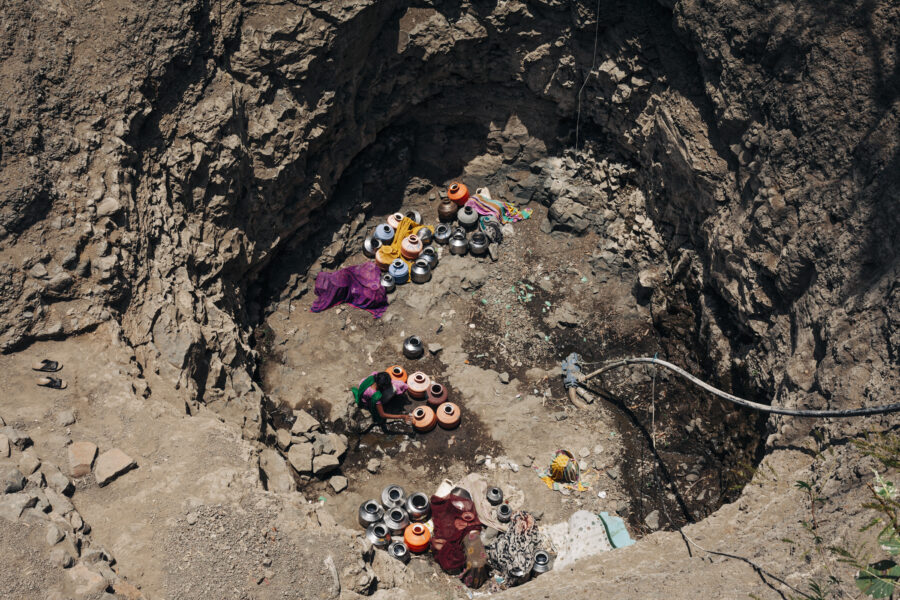
A woman uses a tumbler to fill her pot from a small puddle on the bed of a well in Atola in Latur, Maharashtra.
Parched: Climate Change and Agrarian Crisis in Marathwada, India
In the summer of 2016, the Indian government declared over 330 million people—a quarter of the country’s population—drought-affected. Among the worst-hit regions was Marathwada, spread across 65,000 sq km in Maharashtra.
In 2015, the monsoon failed for the third time in a row, with the region recording an average deficit rainfall of 51%. Some parts received as little as 35% of what is considered normal rainfall, squeezing the predominantly agrarian region dry. As yields suffered and debt accumulated, many farmers were pushed to the brink and beyond. Over 1,100 farmer suicides were reported in the region in 2015, and 216 more ended their lives in the first 71 days of 2016.
The work has appeared in Al Jazeera, CNN and Roads and Kingdoms.
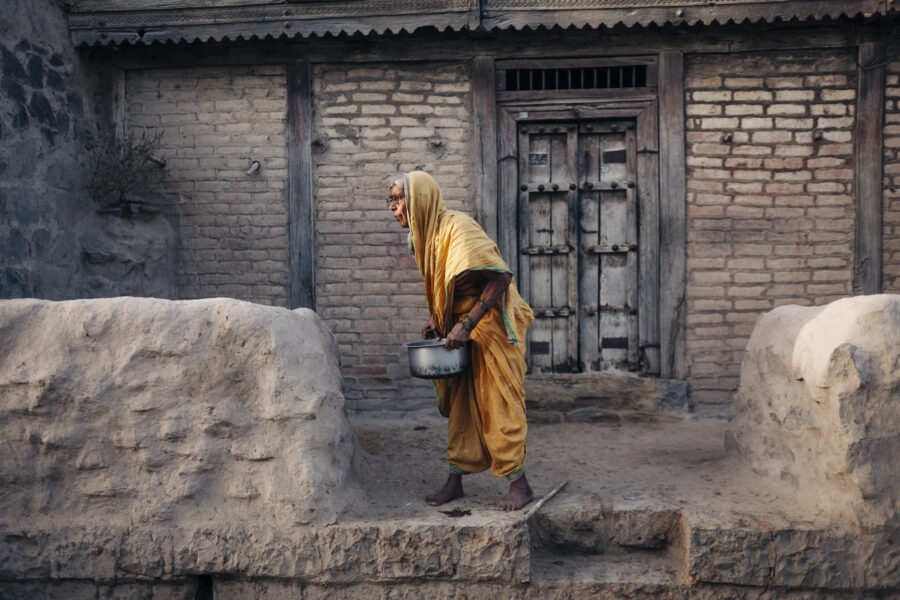
The 1972 drought is a reference point for calculating the age of Vyjayanta Ithape, 70, who gave birth to a son and lost her husband that year. Chincholi in Beed, Maharashtra, where she lives alone, has been relying on water tankers for the past three years, even during the monsoon.”This one is unlike any other drought in the past. We have grain to eat but no water to drink.” March 21, 2016.
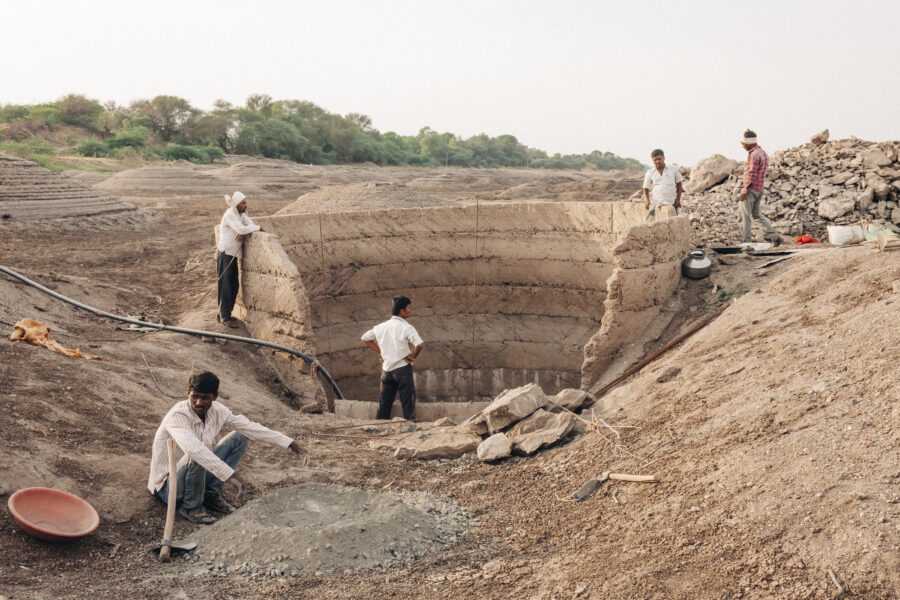
Farmers rebuild an illegal well on the bed of the Godavari, the second-longest river in India, at Gangawadi in Beed, Maharashtra. April 28, 2016.

A man pulls a cart holding two water tanks to a nearby public tap in Dharur, Beed, Maharashtra. March 23, 2016.
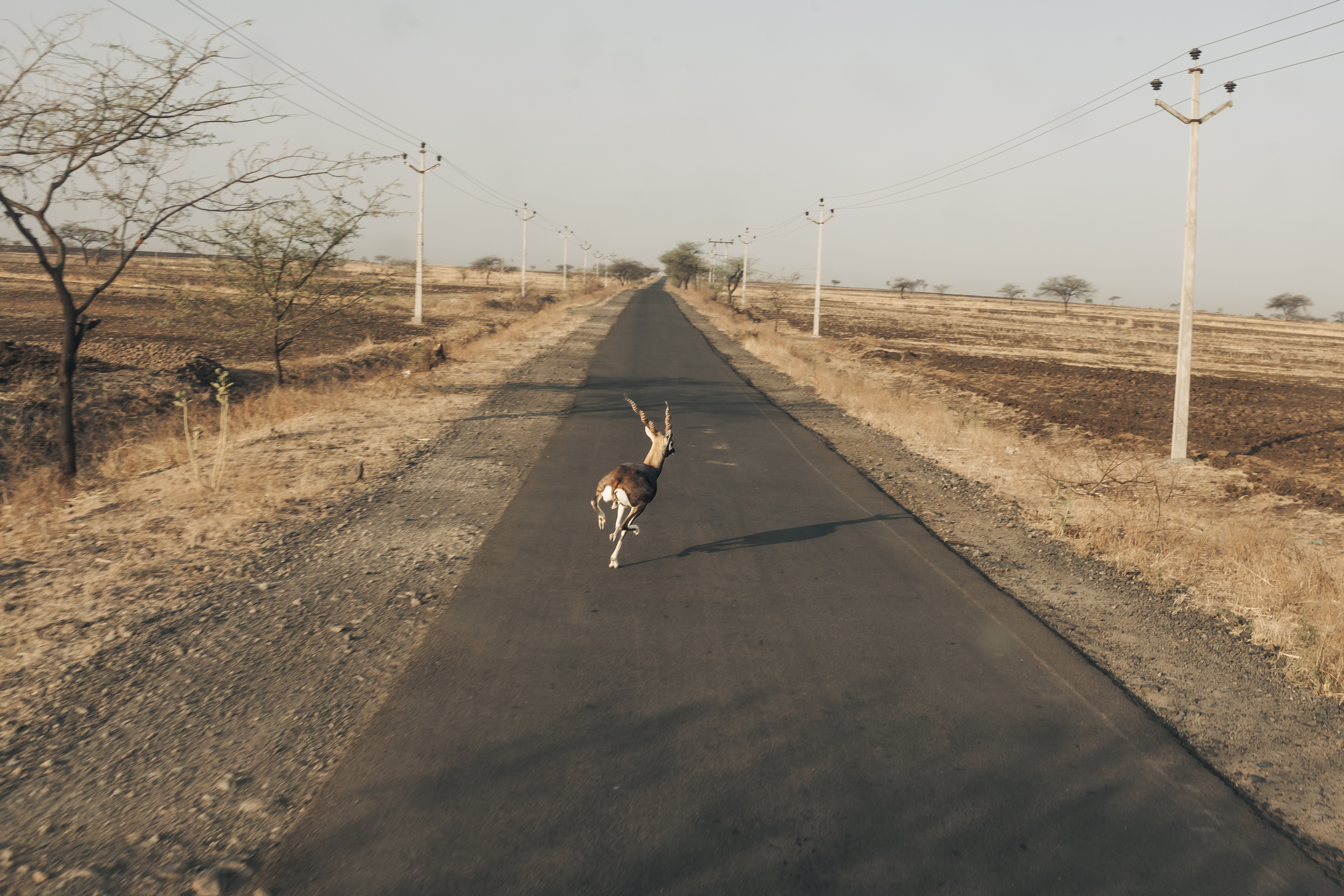
A blackbuck sprints across the road near Belewadi Phata in Beed, Maharashtra. April 30, 2016.
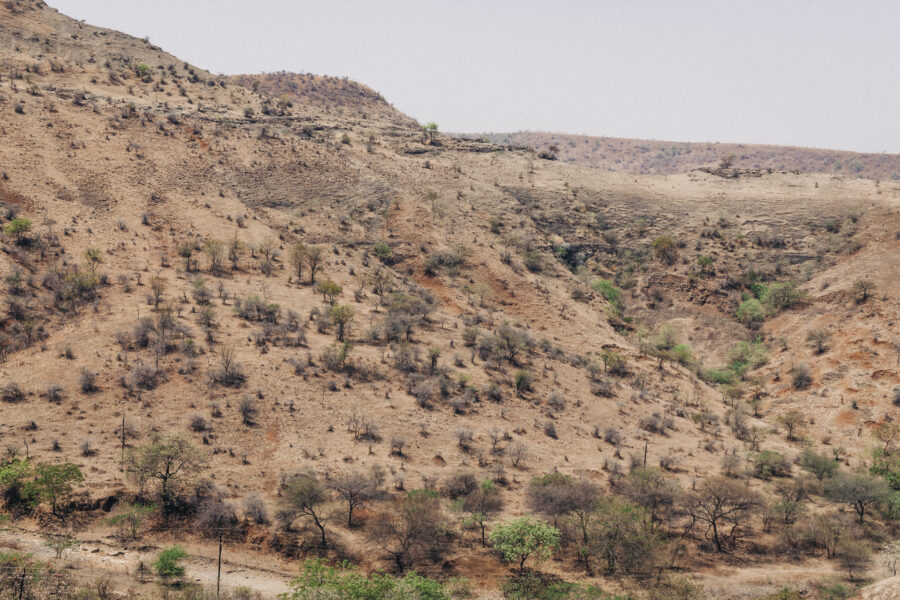
Dead trees dot the hills near Dharur in Beed, Maharashtra. March 23, 2016.
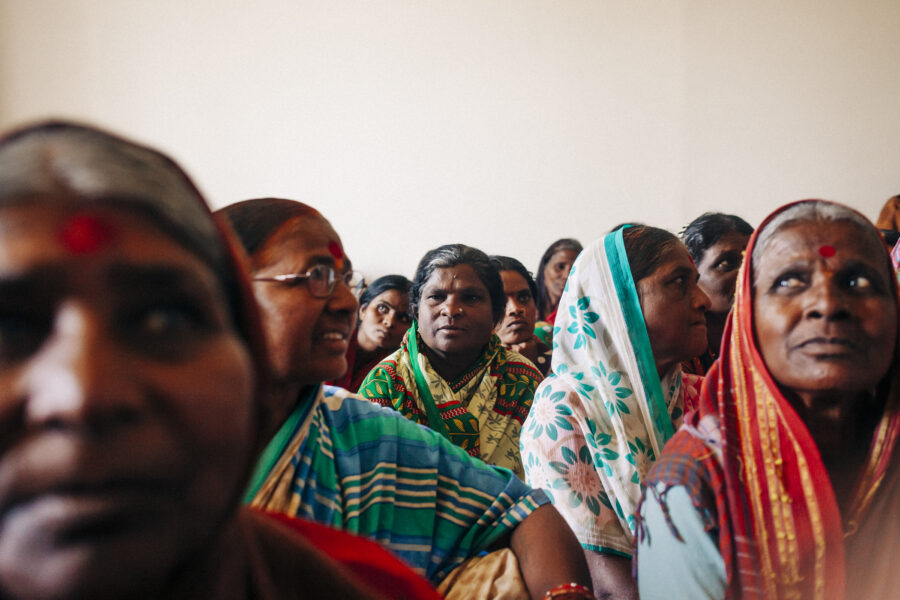
Women stage a sit-in in the office of the Municipal Commissioner of Latur, alleging that their neighbourhood received a tanker in four months, forcing them to walk multiple times daily to a tap that is 3 km away. March 29, 2016.
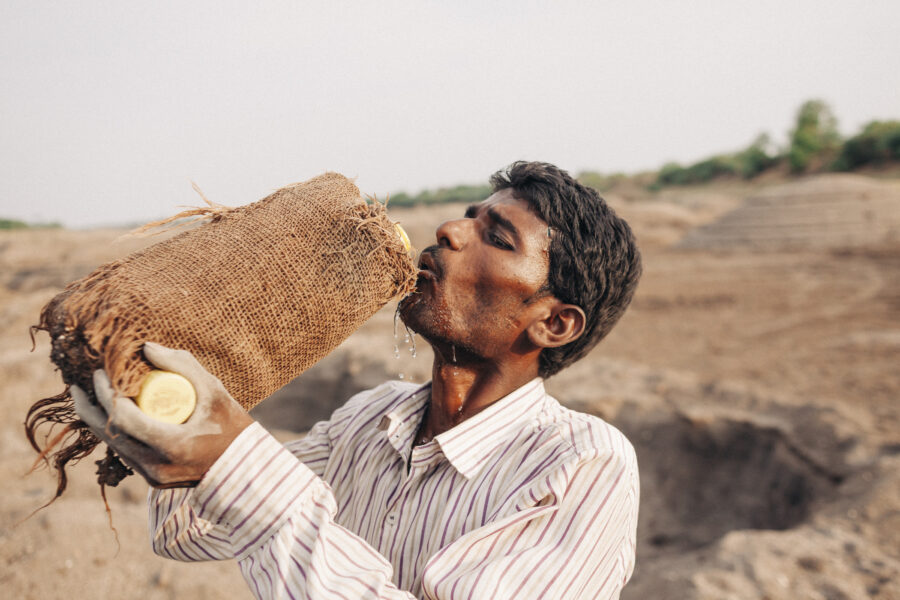
A farmer drinks from his water bottle in Gangawadi, Beed, Maharashtra. April 28, 2016.
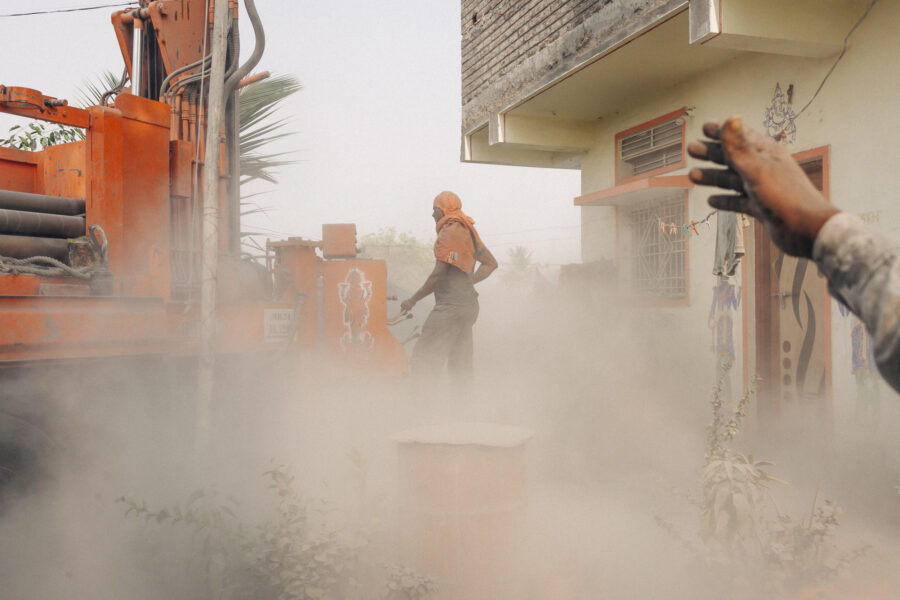
A family gets a borewell dug at the height of the water crisis at Nandgaon Ves in Latur city, Maharashtra. March 27, 2016.
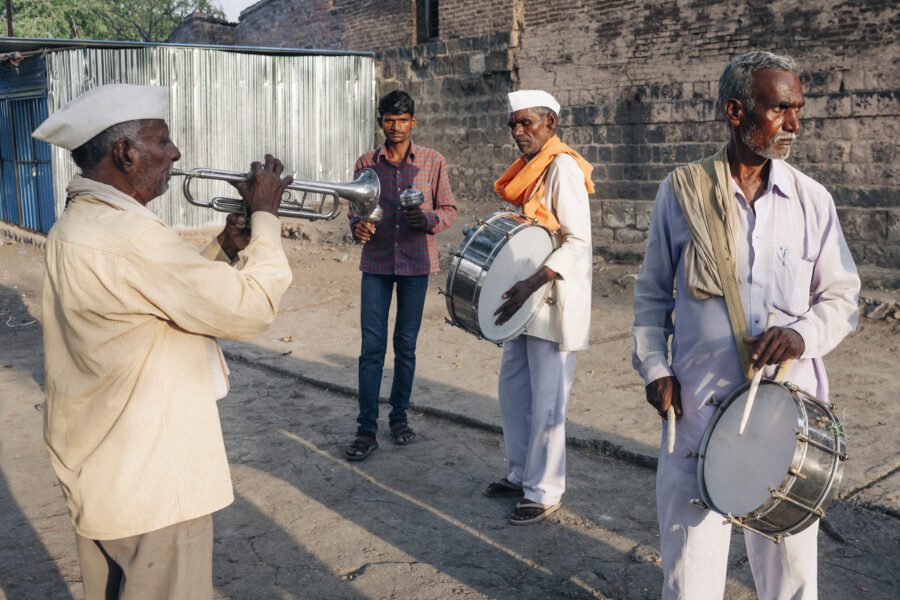
A four-member band plays at a wedding in Manjrath in Beed, Maharashtra. “If not for the drought, the wedding would have been a much lavish affair,” said a relative attending the wedding. May 01, 2016.
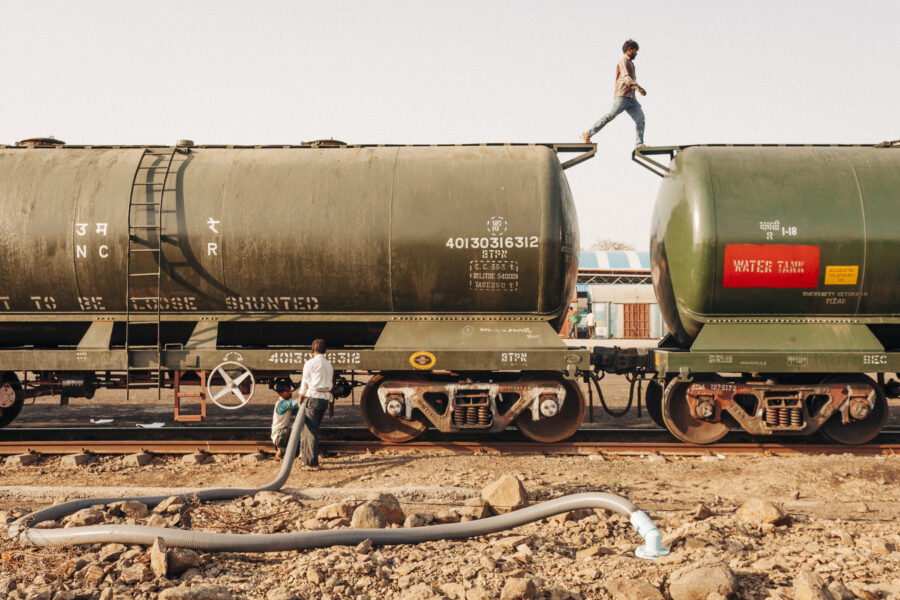
Jaldoot Express, a train bringing in water from a distance of 300km, being emptied at the railway station in Latur city, Maharashtra. May 03, 2016.
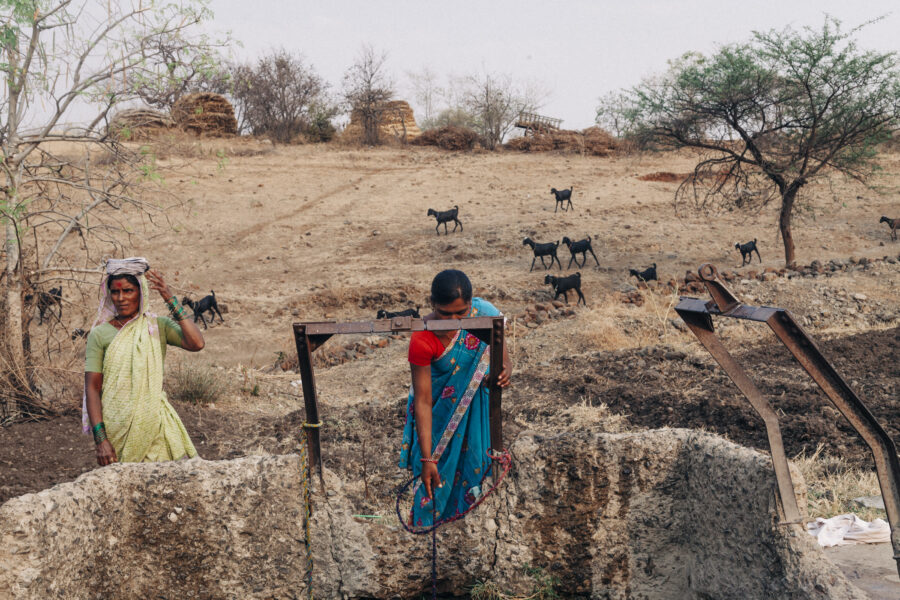
Women draw water from a well, which has long since gone dry but is replenished once a day with water from tankers, at Karigaon in Beed, Maharashtra. March 25, 2016
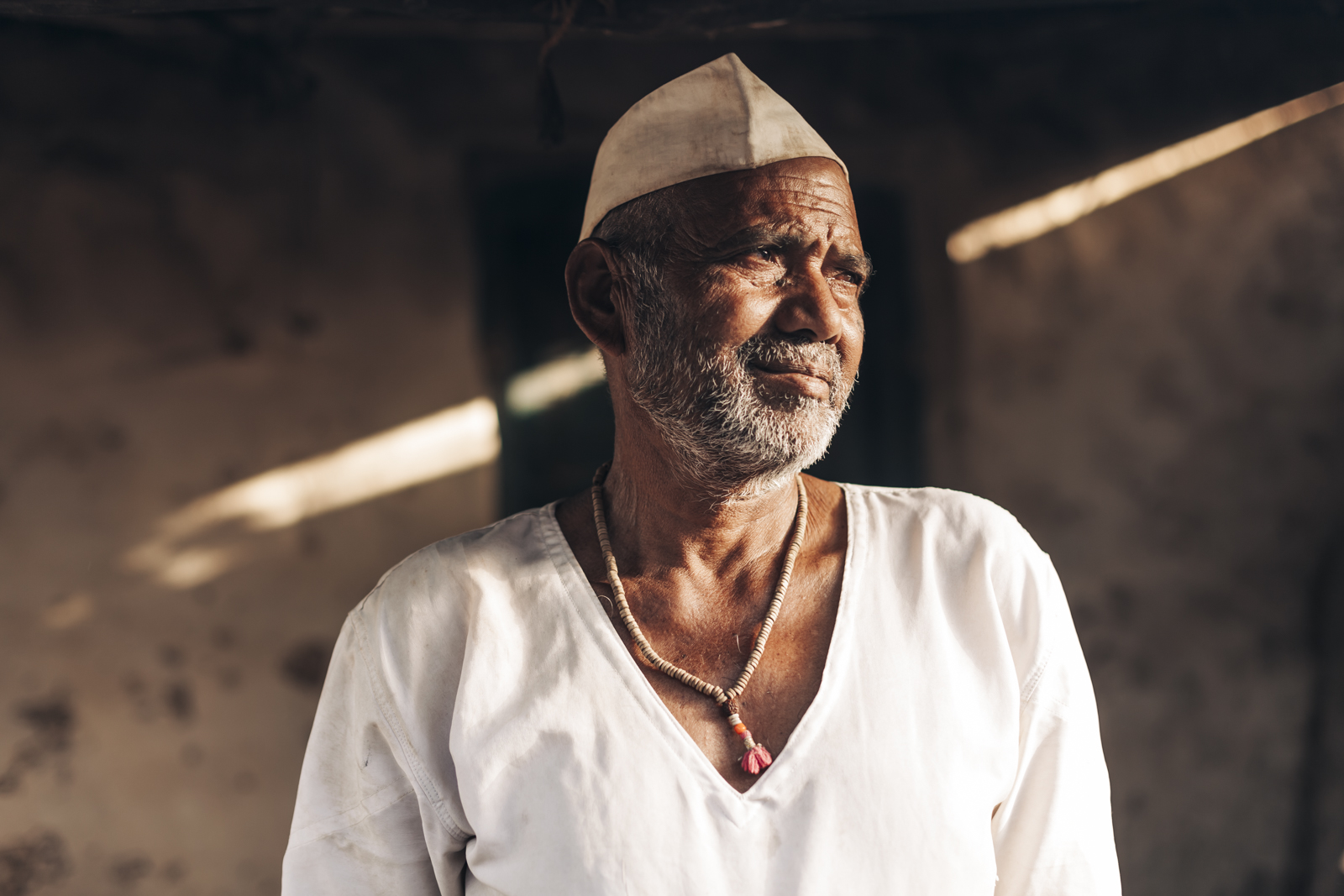
In Kholewadi in Beed, Maharashtra, 500 of 600 residents migrated this year to cut cane in western Maharashtra, leaving only the young and old in the village. March 22, 2016.
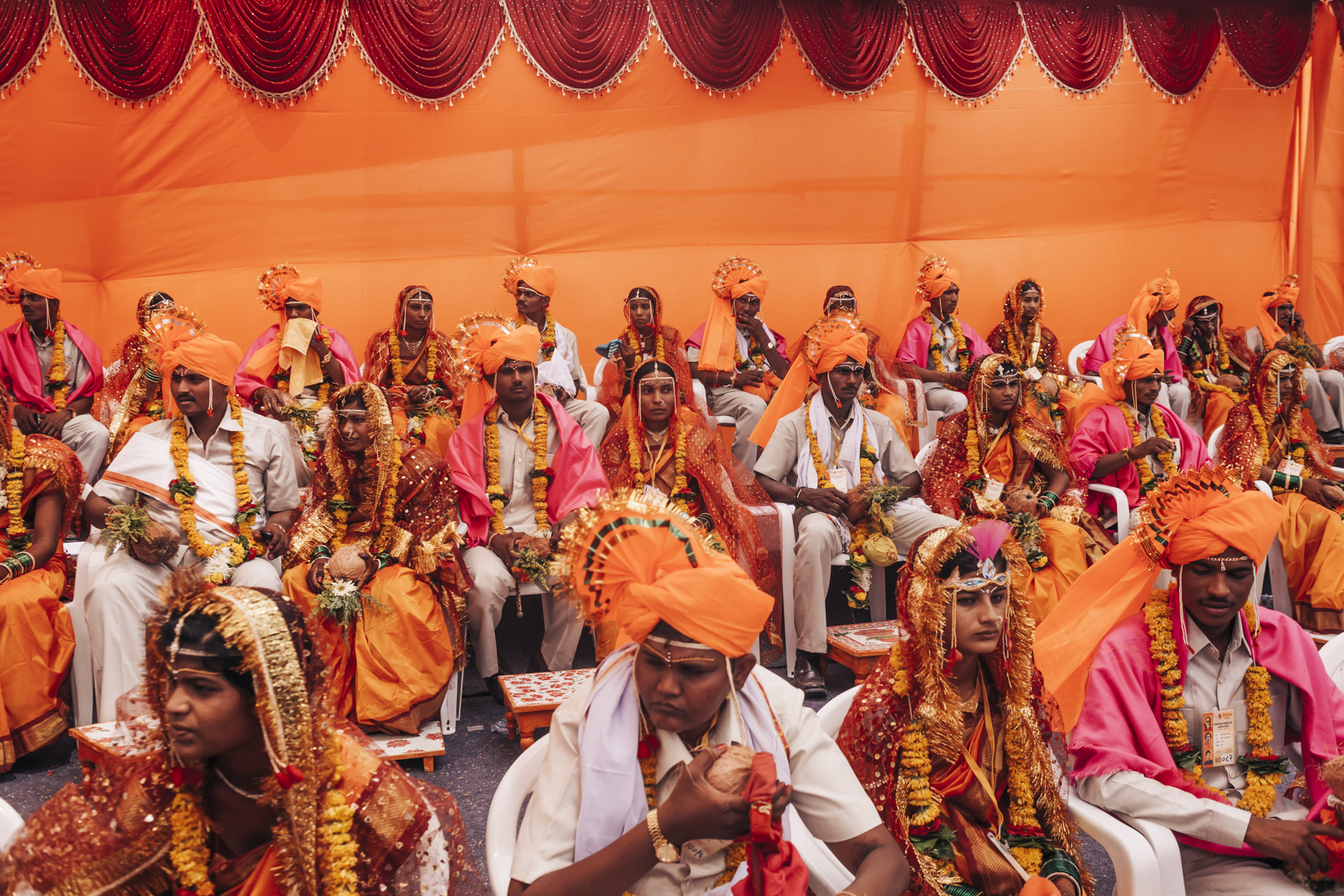
A mass wedding ceremony organised by a political party in Beed, Maharashtra. Such events have become commonplace in Marathwada, where the prolonged drought has left few families with the means to organise a wedding. April 30, 2016.
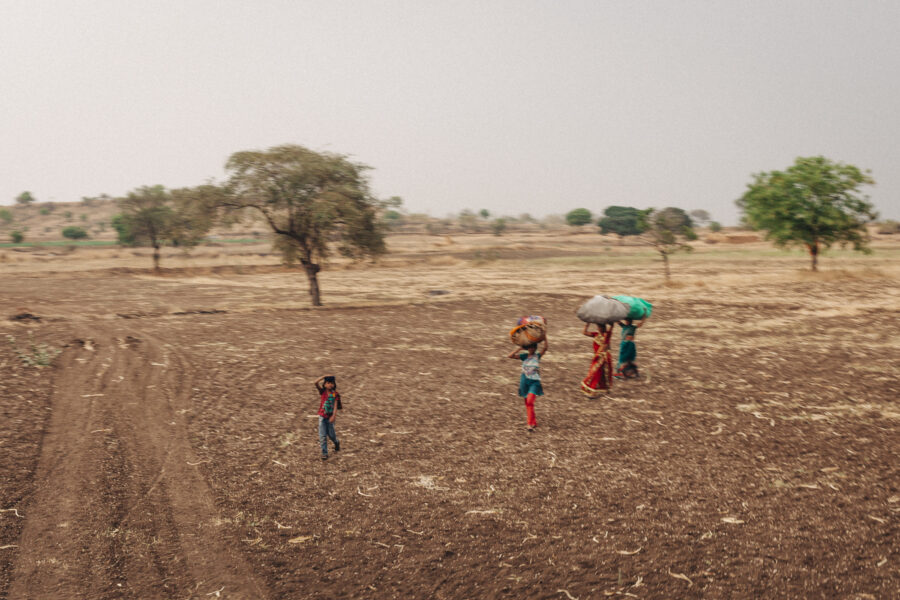
Women walk back to their homes after a day’s work in the fields, carrying firewood, near Dongargaon in Latur, Maharashtra. March 27, 2016.
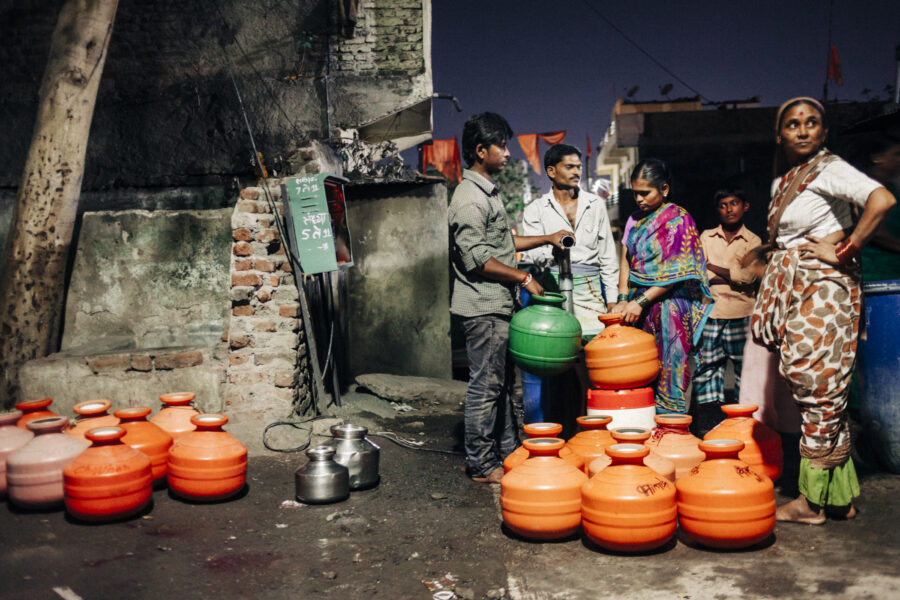
Residents queue for water at a public tap at 11 PM in Latur, Maharashtra. March 28, 2016.
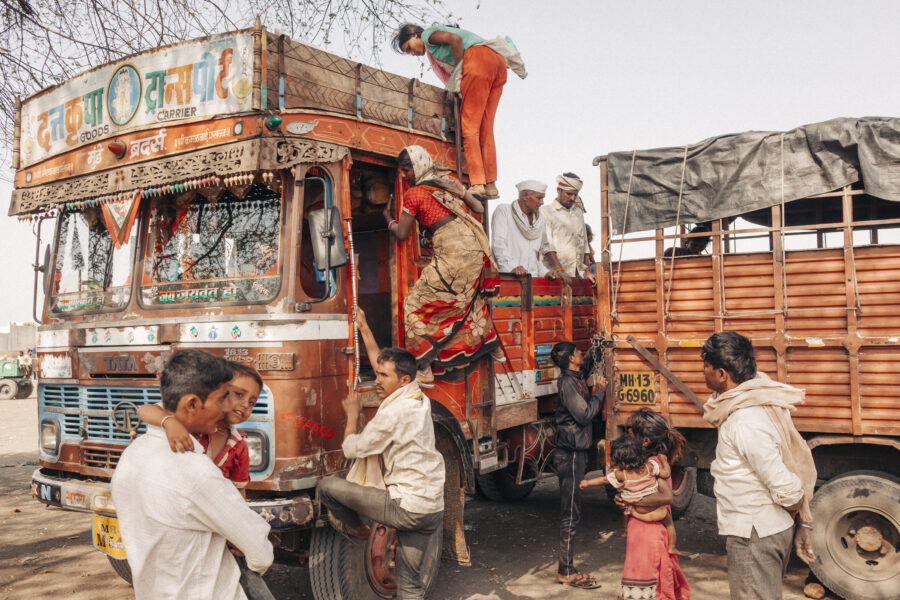
Migrant workers returning from a sugar mill in neighbouring Karnataka, transfer to smaller vehicles at Dharur in Beed, Maharahstra, where they also shop for gifts and essential items before continuing onwards to their respective villages. March 23, 2016.
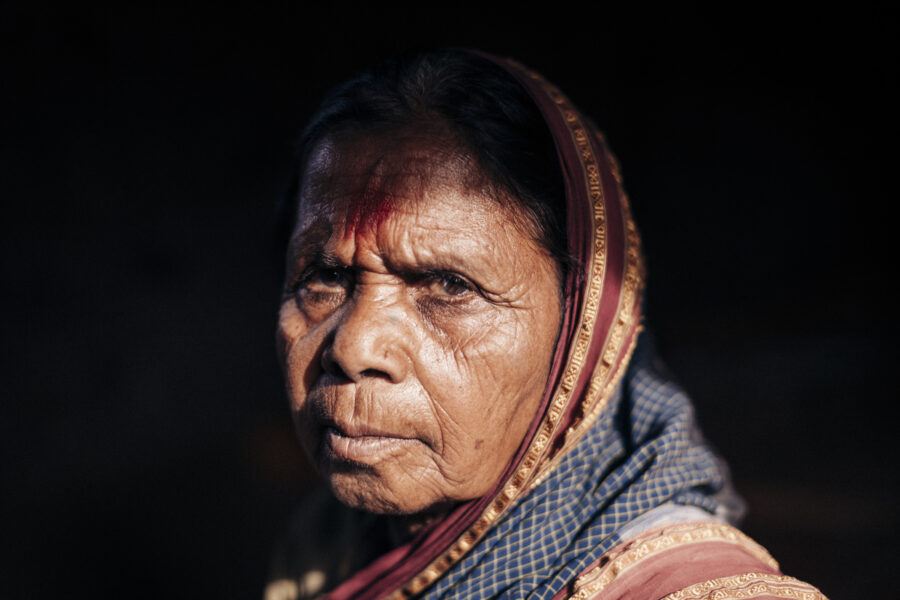
65-year-old Gajrabai Kshirsagar’s three sons, unable to cope with the persistent water shortage, migrated from their village of Saknewadi in Osmanabad, Maharashtra, three years ago. The Kshirsagars own no land and work as farm workers, but the drought has made it difficult for them to find any work in the village for the last two years. Her husband Hiraji, 80, now travels daily to Osmanabad, 10km away, to find daily wage work in construction that pays him Rs. 150 (USD 2).
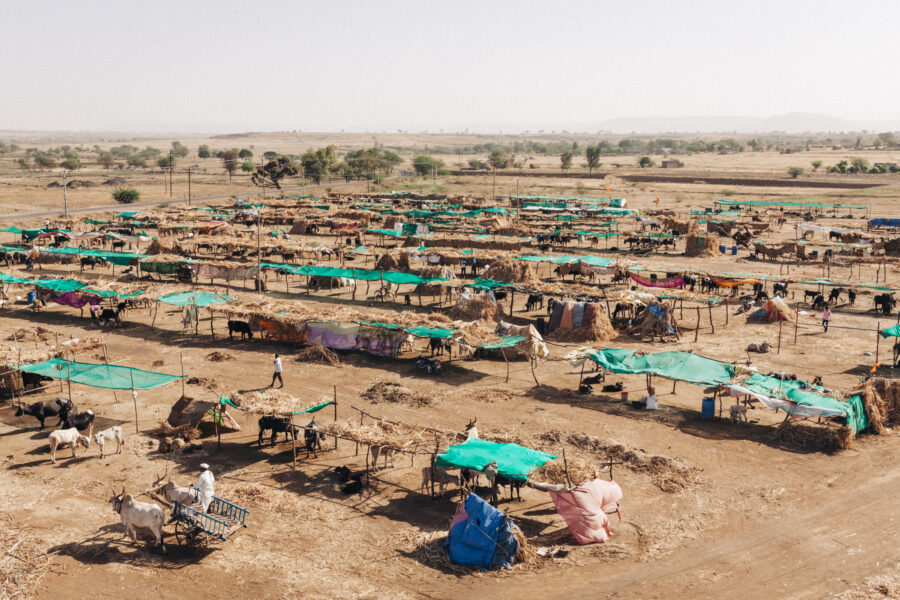
A cattle fodder camp at Siddewadi in Beed, Maharashtra. The state government has opened 327 such camps in the three heavily-affected districts of Beed, Latur and Osmanabad, providing fodder and water to over 300,000 cattle. March 21, 2016.
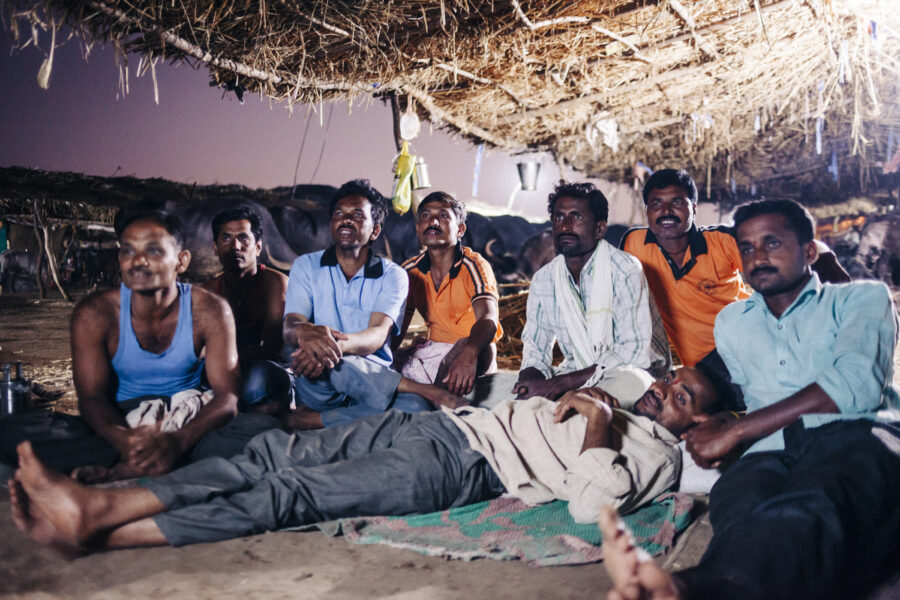
Farmers watch cricket at the fodder camp in Charata Phata in Beed, Maharashtra. March 23, 2016.
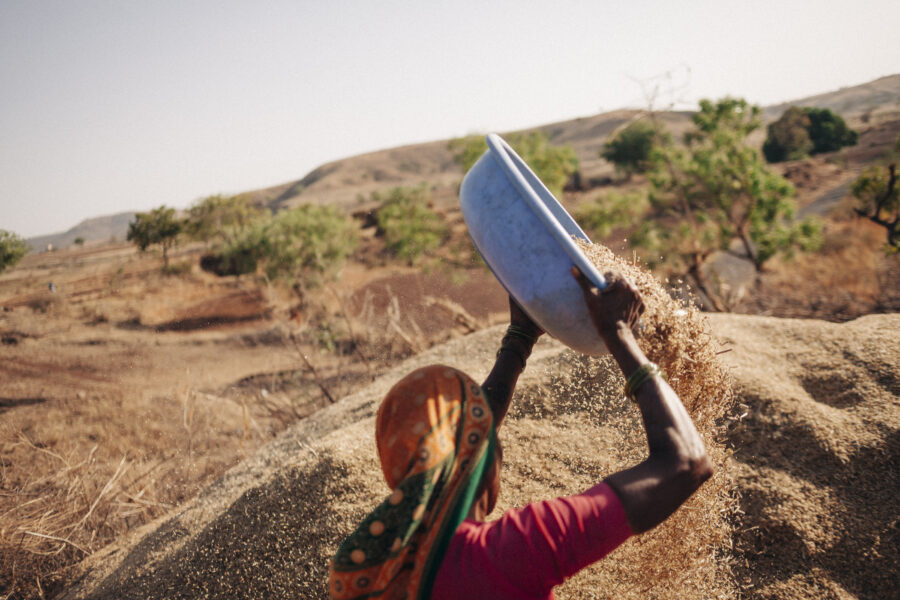
Deubai Disle, 60, winnows the family’s harvest of Bajra (pearl millet) at Dislewadi in Beed, Maharashtra. She said the yield from the 12-acre farm was only 1000 kg against the normal yield of 5000 kg. March 22, 2016.
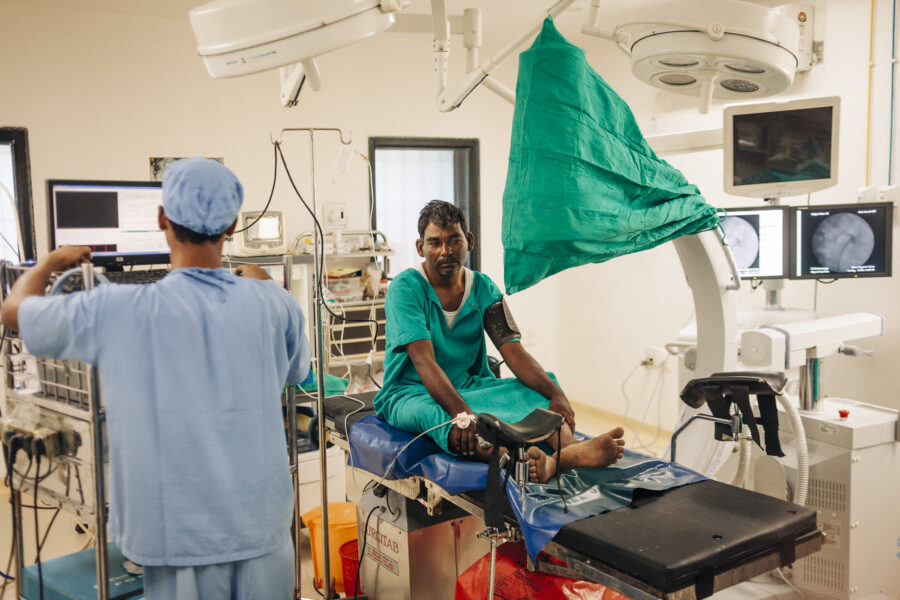
Baliram Jadhav, 40, waits on the operating table for anaesthesia to be administered before surgery to remove the stones in his kidney at a private hospital in Latur city, Maharashtra. Jadhav, a farmer, says water from a bore well, which he’s been consuming for two years after the well dried up, is responsible for the stones. He delayed the surgery for two years as he didn’t have the money, but he went in for the surgery as the pain grew worse with money borrowed from relatives and friends. May 03, 2016.
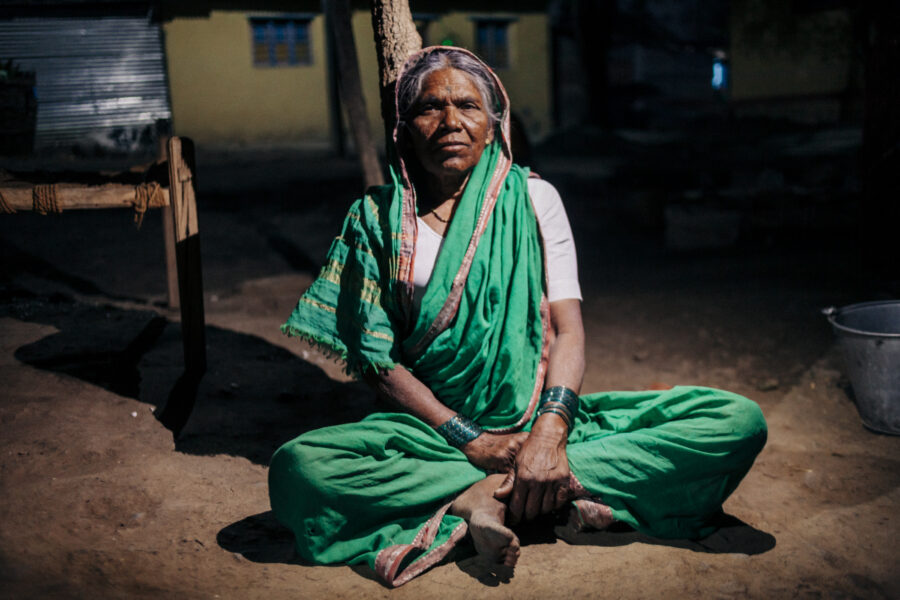
On April 26, 2016, clashes broke out between the upper caste Marathas and Dalits (previously considered untouchables) in Bhavthana, Beed, Maharashtra, over the latter’s celebration of the 125th birth anniversary of Dr. BR Ambedkar. Suman Maske, 60, was injured when stones pelted by the Marathas hit her on the head and had to spend two days at the hospital in Ambajogai. The Marathas have since cut off the water supply to the Dalit neighbourhood, an act she says hurts her more than the injuries. May 03, 2016.
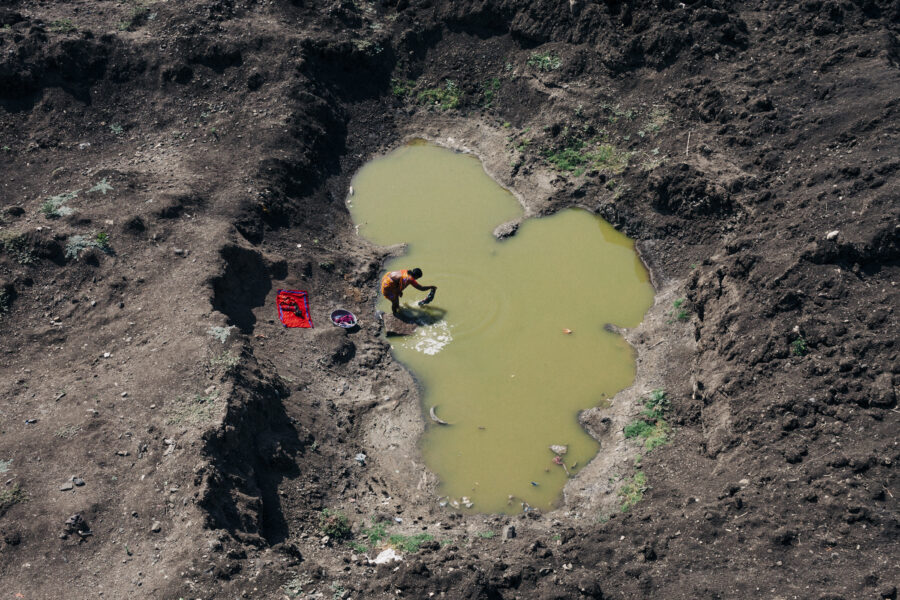
A woman washes clothes in the Manjra river at Arjkheda village on the outskirts of Latur, Maharashtra. May 03, 2016.
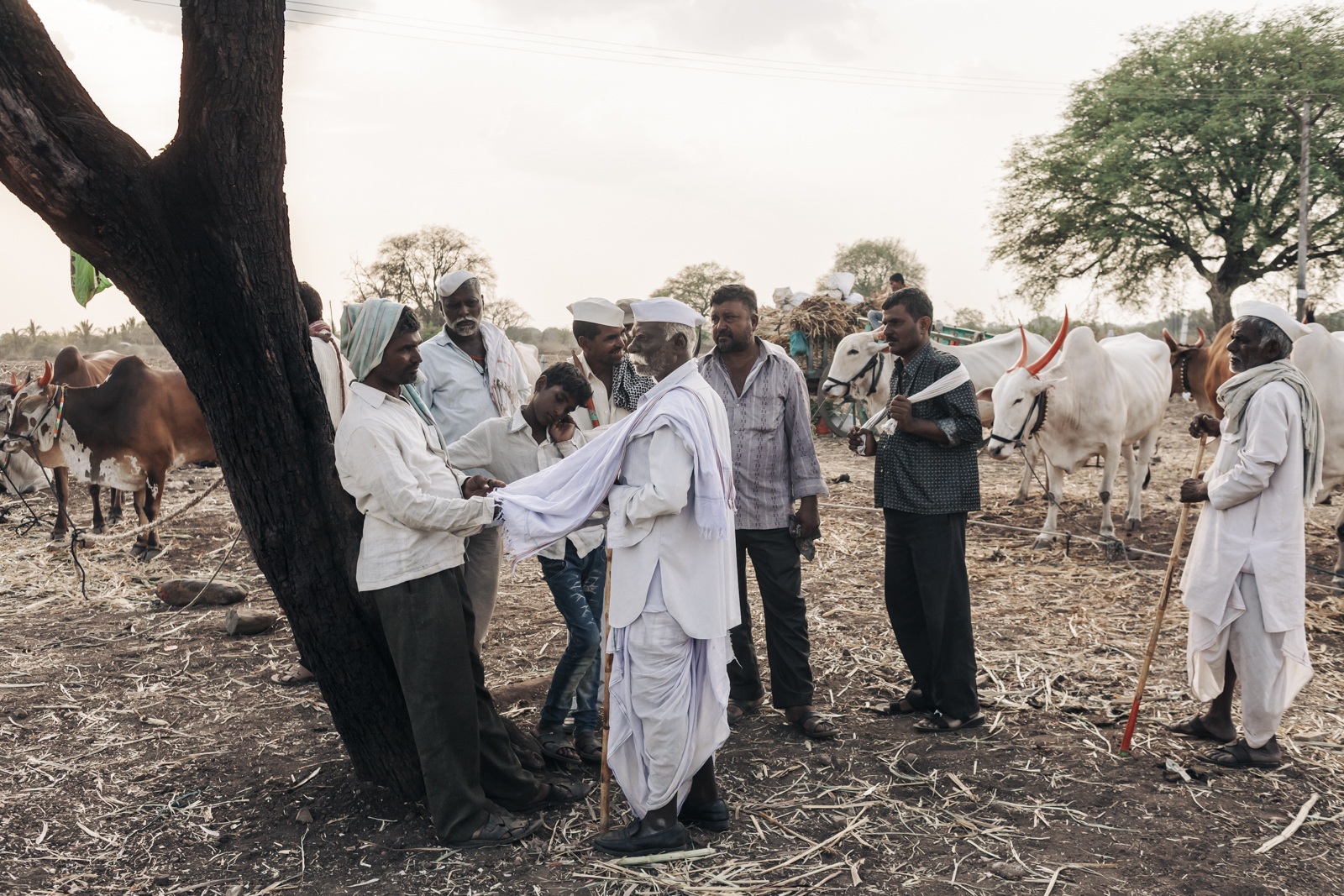
Farmers negotiate the price of a bull at the weekly cattle market in Yenegur in Osmanabad, Maharashtra. Across Marathwada, farmers who had endured three failed monsoons trudged alongside their famished animals to cattle markets such as this, where they sold them off for whatever little amount they could fetch. Prices were pushed further down as the state’s prohibition on slaughter of all cattle kept away traders who catered to slaughterhouses. May 16, 2016
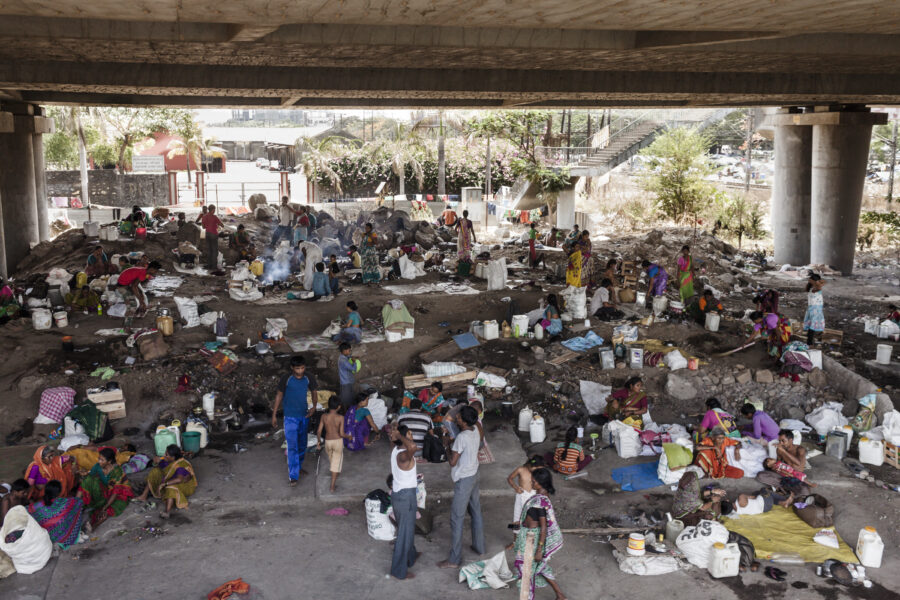
Drought migrants from Marathwada and other parts of the state set up temporary shelters under a flyover near Turbhe Naka in Mumbai. May 29, 2016.
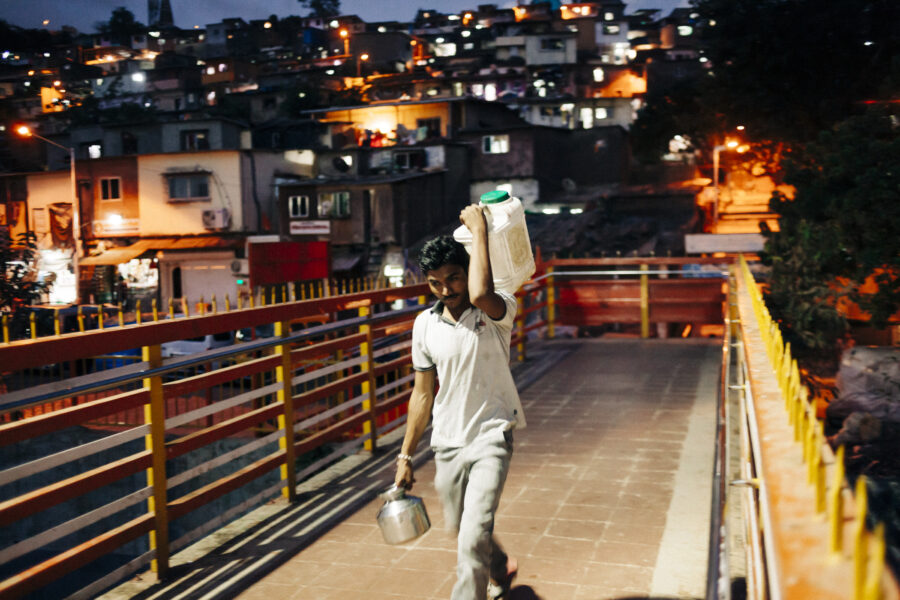
A drought migrant returning from work carries the water to his tent at the camp in Ghatkopar, Mumbai. May 26, 2016.
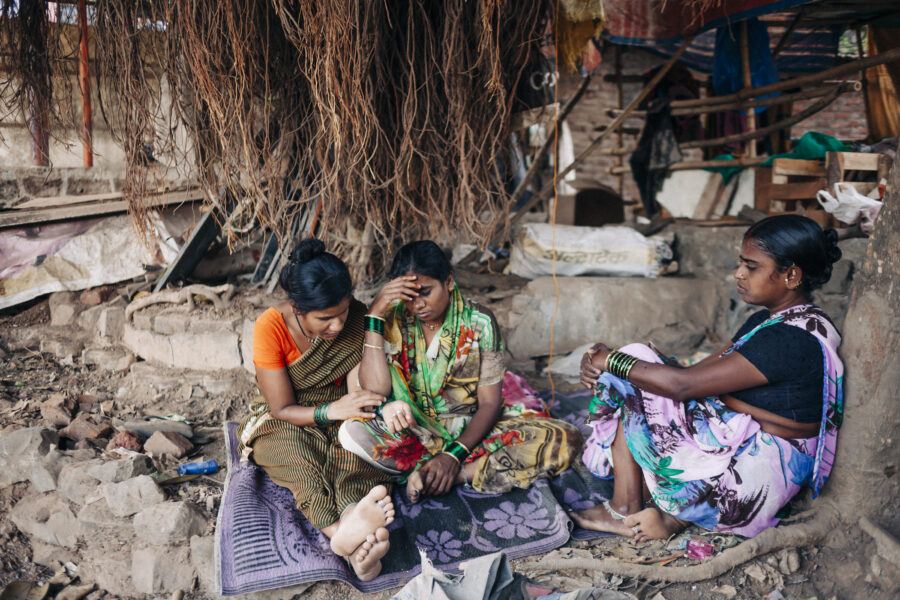
A drought migrant returning from work carries the water to his tent at the camp in Ghatkopar, Mumbai. May 27, 2016.
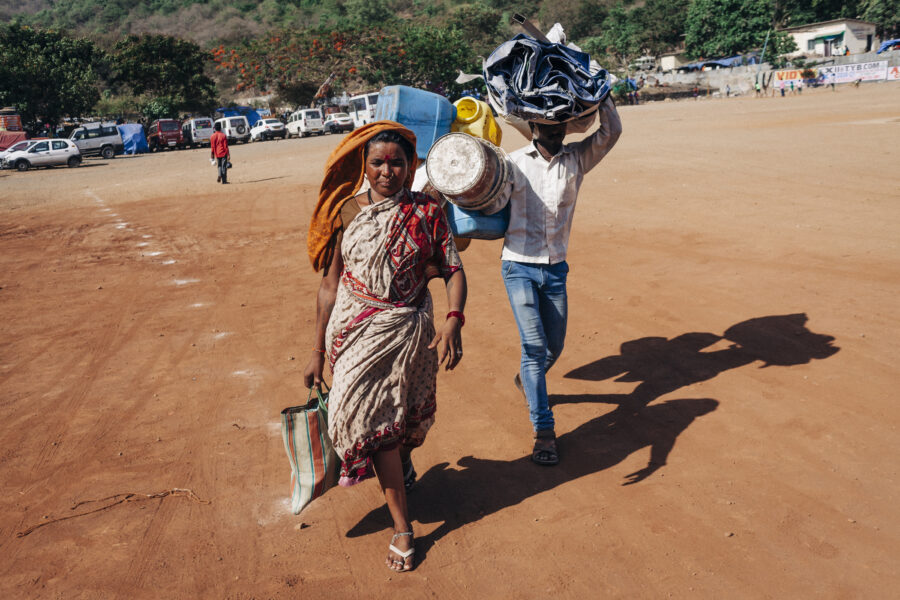
A family leaves the camp in Ghatkopar, Mumbai for their village in Nanded to prepare their farm for the monsoon rains, expected to arrive in a few weeks’ time. May 25, 2016.